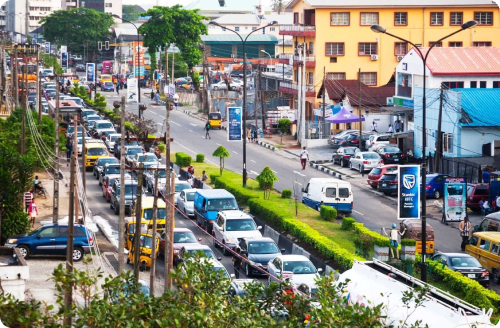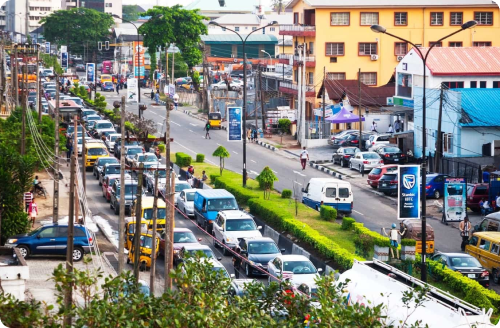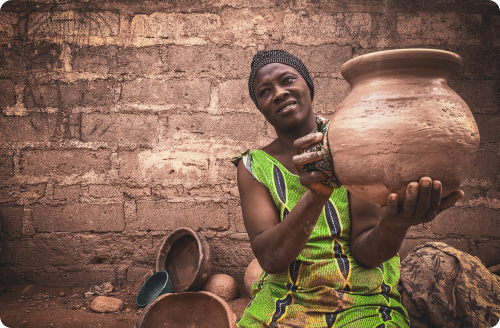Nigeria is a multinational state with over 200 million inhabitants and 250 ethnic groups among which, these three are the most popular– the Yoruba, the Hausa, and the Igbo. The country is located on the shores of the Atlantic Ocean sharing boundaries with Chad, Niger, Benin, and Cameroon. Despite having over 500 unique languages, English is still one of the most spoken languages of its people.

Nigeria is also a blessed country with a rich cultural heritage that exhibits creative art and a magnificent array of diverse multifaceted aspects of its unique and wonderful people. If you plan on traveling to Nigeria anytime soon, you may want to take note of a few things below to help you familiarize yourself with the country and its people.
1. Friendly “Energy”!
E is for Energy in Naija. Nigerians are known for their vibrant and welcoming spirit that creates a friendly atmosphere anywhere around the people they meet and the places they go. They love foreigners, which they mostly refer to as ‘Oyinbo’ meaning ‘White Person’. They are peace-loving and are generally accommodating to tourists and people of different races and cultural backgrounds.
As a result of their energetic spirit, they seem to come off as lousy or weird because you may find them shouting a lot in the street and the bustling market places but that’s just them being who they are. So, no need to panic or raise an alarm. One thing you wouldn’t want to do is to get into an argument with a Nigerian or get into a fight because they are mentally and physically strong to withstand and fight against anything.
2. The City of Lagos and Abuja
Despite having 36 states across the Nation, Lagos city and Abuja city are the two most popular states. Lagos state is the largest and most exclusive city to live in Nigeria. It’s been considered as one of the most populous cities in Africa with over 21 million inhabitants. Lagos city is a metropolitan area filled with conglomerate businesses and big industries that are doing well globally.
Also, Lagos is a beautiful tourist attraction center for travelers and is often referred to as the ‘New York’ of Nigeria. People love Lagos because it consists of different people from different sociological backgrounds, both locally and internationally, it’s the best environment for any business to thrive and a world-class driven place to spend a holiday or peacefully relax for as long as possible.
Abuja which is known as the Federal Capital Territory (FCT) is the Nation’s Capital since 1991. It is the center of power, the center of unity, and the seat of government in Nigeria. Abuja is more peaceful compared to other states; it is calm, free of chaos, and mostly referred to as the wealthiest cities in the nation since most of the big corporate ministries and parastatals have their head office situated there.
The Nigerian Presidential Duplex popularly known as Aso Villa that you hear a lot about is located in Abuja having the National Assembly and Supreme Court positioned around it. Although Abuja is not as big as Lagos, it is quite cheaper to live in with an average standard of living. Taxis are the most common means of transport in the city and you can enjoy sightseeing in Abuja regardless of your budget.
3. Nigerian Meals are Spicy
If you come to Nigeria and you get to taste any of their meals, kindly come back to this post and give us a shoutout because we informed you beforehand. So, you may have to get a lot of water by your side when eating some of the popular dishes in Nigeria. The foods are deliciously prepared with lots of spices and meats; they will blow your taste buds away.
Some of the popular Nigerian foods are; Jollof Rice, Beans and Plantain, Efo Riro, Tuwo Shinkafa, Edikaikong, Oha Soup, Ofada Rice, Ewa Agoyin, Amala and Gbegiri Soup, Semovita and Ewedu Soup, Eba and Ogbono Soup, Pounded Yam and Egusi Soup, Moi Moi and Pap, Nkwobi, Akpu and Afang Soup, Abacha and Ugba, Boli and Groundnut, etc.
If you are a foodie and you ever get to visit Nigeria, make sure you get to taste all of these foods, but mind the pepper, take your water, and thank us later.
4. Weather and Climate Conditions
If you love to hike on a sunny day, welcome to Nigeria! The weather is often hot in most places especially the farther north, but relatively cool from August to January. The tropical climate in Nigeria varies depending on the location, but it has both the rainy season and dry season. Jos, Plateau State is the coldest, and Borno, Gombe State is the hottest parts of the country.
If you’re coming to Nigeria, then be prepared to come in a lot of summer clothes and dresses. It’s not always hot out there, but then, it depends on what season and region you will be staying in.
5. Security
Nigeria is faced with a lot of security problems, but it’s a safe place to be considering other countries faced with the worst scenarios. The security of the nation has taken poor shape over the years, but then Nigeria is a nation of believers and many of its citizens are just trying to survive.
You have to be watchful, careful, and stay safe, always wherever you decide to live in. Avoid late-night parties, outings, and lonely places. You may have to take responsibility for your security as the Armed forces can’t guarantee you one. If you learn to mind your business a lot and focus on the positive sides, you won’t get into any trouble.
6. VISA Application and Requirements
All foreigners planning to visit Nigeria are required to obtain a Nigerian visa unless they come from the Economic Community of West African States (ECOWAS) countries that are exempted from obtaining a visa to enter Nigeria. The application for a Nigerian visa is very easy and can be carried out at the Nigerian embassies or online through the Nigerian Immigration Service (NIS) website.
Application for the Nigerian visa can be completed online from any part of the world on the online portal of the Nigeria Immigration Service and it is important to note that cash payments for visa applications have been prohibited. Travelers are now required to present proof of payment through a printed payment receipt and acknowledgment slip which is issued online.




